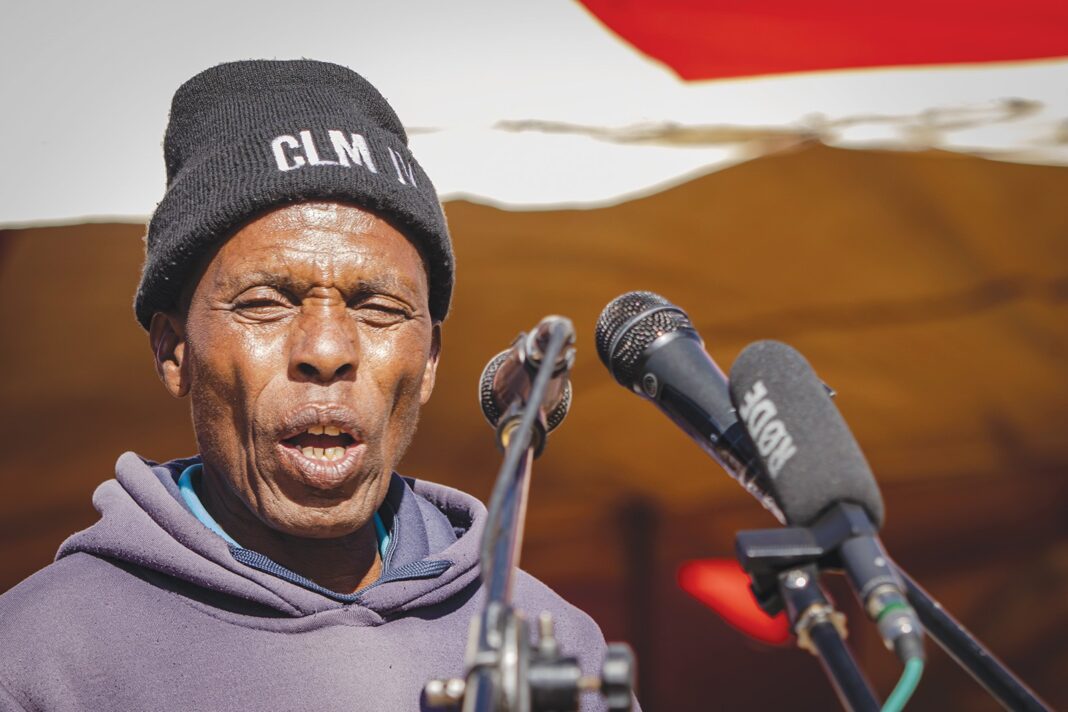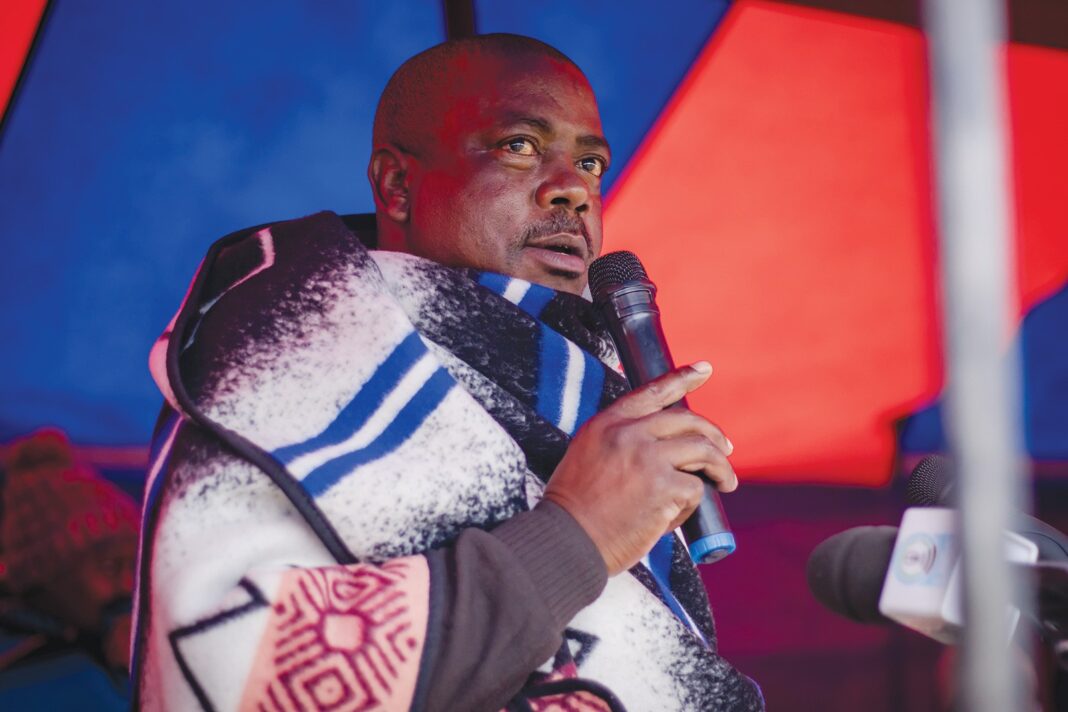By Neo Kolane
There is an unsettling trend in some rural and secluded areas of Lesotho, of students not interested in proceeding to high school level after completing primary education, due partly to financial constraints.
This observation was made by the chairperson of the board of Tṧehla Primary School, Matthews Ntṧupa. This school is situated at Matsoku in the hinterland of the Leribe district.
As a result, Ntṧupa believes the only way to remedy the problem is by making secondary and high school compulsory.
“A huge chunk of children here does not go school after completing primary education. This is mostly because their parents are poor and cannot afford to send them to high school.
“After dropping out, the boys usually keep busy by herding cattle, mostly their parents’. As for the girls, they end falling pregnant or getting married at a very tender age.
“Something needs to be done. I think it would be best to have a law that makes it mandatory for children to go to school. This non-enrolment is a serious in the rural parts of Lesotho is a counterproductive problem.”
The problem is not limited to Leribe only. The principal ‘Mathabelo Seqhibi of Ha Rankomo at ‘Mantṧonyane in Thaba Tseka, says parents cannot afford to pay for their children’s high school education because of poor remuneration.
Seqhibi said boys are mostly not interested in school while girls are more enthusiastic but are forced by domestic circumstances to stay at home.
“Boys prefer to become herders. Sometimes they would rather drop out altogether than repeat a class they have failed.
“These things happen in schools that are very far from town. Honestly speaking, government could provide with a solution by allowing children from indigent households to enrol for free.
“Some of these boys become unruly after dropping out of school, and I think they need to be disciplined by the Lesotho Defence Force.”
The principal secretary of basic education of the ministry of education and training Dira Khama said there are 1,500 primary and 350 high schools in Lesotho, and the country’s education system itself does not cater for progression at the moment.
Khama noted that there are many other kids who are left out or disappear after primary, who decided not to continue with their studies.
He said, to solve the problem, school children need to be encouraged to go to school by making schools more attractive.
One of the things that make school more attractive, he said, is the food that learners are fed at school.
“By making school attractive and interesting as well as the teacher themselves, the children will therefore be eager to go to school. This issue has come to the attention of the ministry of education and training. There is a programme that will be introduced which will improve school attendance and give rural children a chance to go to school, even if they think their livestock is more important.
“We will advise them to go for informal learning if they say otherwise. They could find teachers later in the day after they come from the fields. We will also work with UNICEF on the programme,” Khama said.
Khama said the problem is not unique to Lesotho as it affects other countries as well.
Meanwhile, the government of Lesotho and the World Bank recently signed an agreement to improve student retention in times of COVID-19 in an environment in which boys, particularly from poor households and in the rural areas, are most vulnerable to dropping out of school. The project will also help strengthen the country’s basic education system.
Funded through a M111 million grant from the Global Partnership for Education (GPE), the Basic Education Strengthening Project (BESP) will also help improve the quality of teaching in junior secondary schools in targeted communities as well as support the rollout of a new curriculum to strengthen Early Childhood Care and Development (ECCD).
The minister of education and training ‘Mamookho Phiri said the ministry has come a long way in improving access to junior secondary education, however the COVID-19 pandemic has exacerbated primary and secondary student drop-out rates. With this project, we will be able to retain students across the education system and give them a chance for a better future
“Targeting rural areas with high poverty rates and high school drop-out rates, this project includes a component that will help improve the efficiency of cash transfer schemes to students from poor households.
“About 18,700 students will be supported throughout the project with a top-up of M1, 500/$97 per student on the Child Grant Program (CGP), starting in 2023. In addition, the project will also incentivize students to stay in school by scaling up the implementation of social youth clubs that are already active in schools.
Furthermore, the project will provide structured support to roll out a new curriculum to over 300 reception classes and ECCD centres. It will also help improve the quality of teaching by strengthening online training models in mathematics and science for junior secondary school teachers. The project will also provide technical assistance to strengthen the government’s capacity to monitor progress of the Lesotho Basic Education System.
The World Bank country director for Lesotho, Eswatini, Botswana, Namibia and South Africa Marie Francoise Marie- Nelly said through this project, we are supporting children in critical stages of their development by strengthening the provision of Early Childhood Care and Development, keeping boys and girls in school, and improving the quality of their education—all of which is paramount to helping them become productive adults that contribute to growing Lesotho’s economy and ending extreme poverty.
“This project responds to the Education Sector Response Plan, which is in line with the wider national response plan and reflects the importance of a multi-sectoral approach to mitigate the impact of the COVID-19 pandemic.
“The project is further aligned with a key objective of the second National Strategic Development Plan (2018/19-2022/23) which aims to strengthen human capital development,” Marie- Nelly said.
The acting chief executive officer GPE Charles North commented on the project saying it comes at a critical time, as Lesotho continues to build back from the devastating impacts of the pandemic on education.
“We hope that this funding will ensure more students, especially the most vulnerable, stay in school and continue to receive a quality education,” North said.









